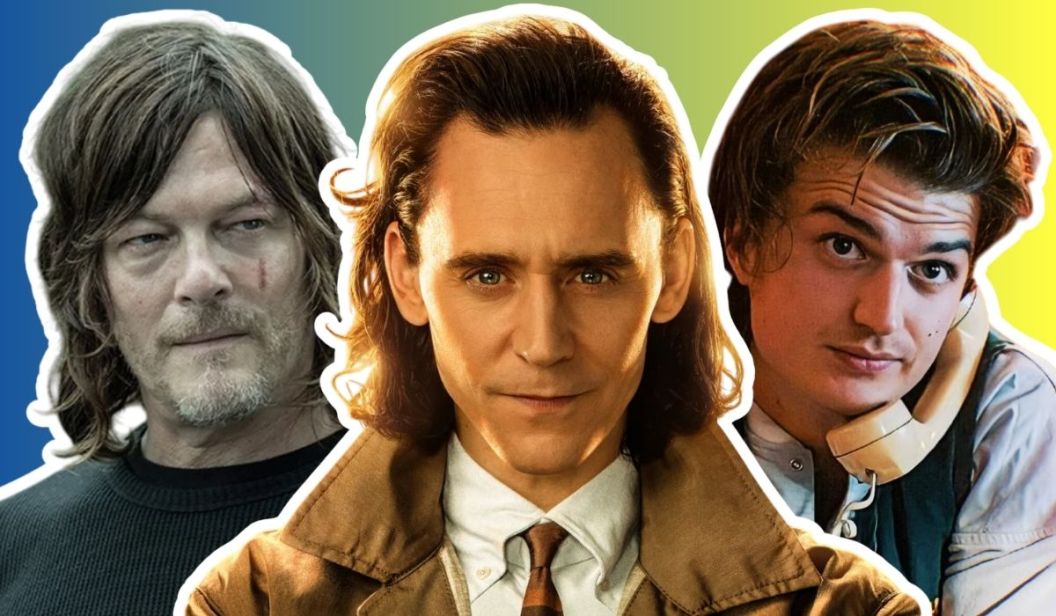
Few things are as rewarding for the audience as following the journey of a character who transforms before our eyes. One of the best things about watching a TV show, besides the story, is its characters – and when they have a well-developed arc throughout the episodes, it’s genuinely satisfying and emotionally engaging. Whether through unexpected redemption, a moral fall, or a slow build of self-awareness, well-written characters become unforgettable because they reflect our own contradictions and inner struggles. More often than not, they’re the ones who truly keep the audience invested, emotionally connected, and curious until the very end.
Here are the 10 best character arcs that went beyond the script and left a deep impression on pop culture and TV history.
1) Loki (Loki)
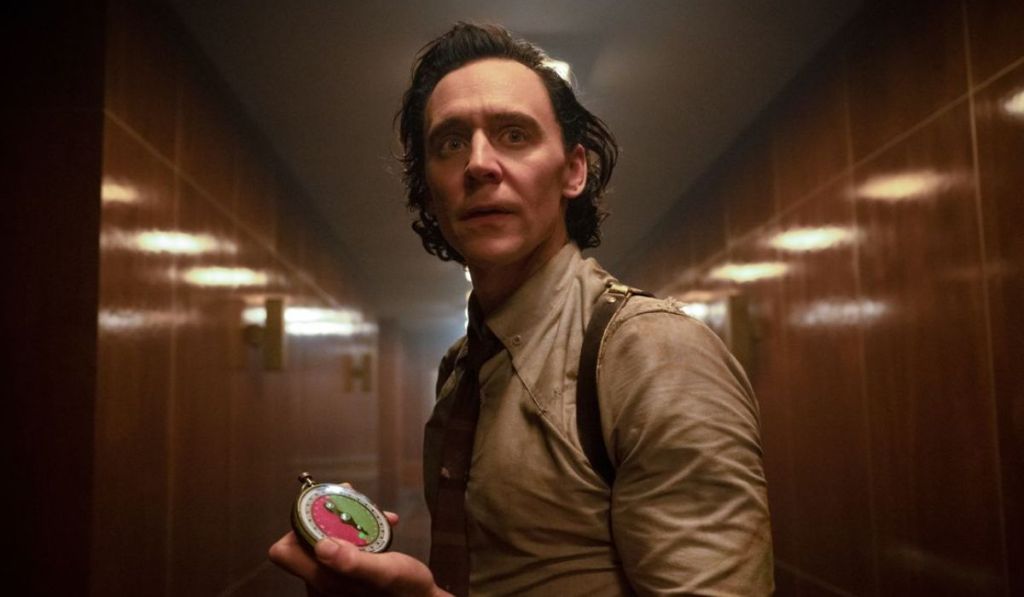
In the Marvel Cinematic Universe movies, Loki was already one of the most beloved characters by fans – largely because he never fit the mold of a traditional villain. His complexity came from his motivations, his contradictions, and his emotional volatility. But it was only in the Loki series that, beyond officially becoming an antihero, he truly won over audiences by exposing his flaws, his pain, his thoughts – and, above all, his humanity (despite being a god). The show gave him something he never really had: time. And with time came depth.
The Loki we once knew is gradually deconstructed to reveal someone searching for meaning, connection, and identity outside of Thor’s shadow. His arc moves between the existential and the emotional, even challenging the very concept of free will in a universe where everything once seemed predetermined. In the end, Loki doesn’t just accept his role in the multiverse – he redefines it. By turning one of the MCU’s greatest villains into a solitary guardian of time, the series delivers one of its most daring and emotionally resonant character journeys.
2) Walter White (Breaking Bad)
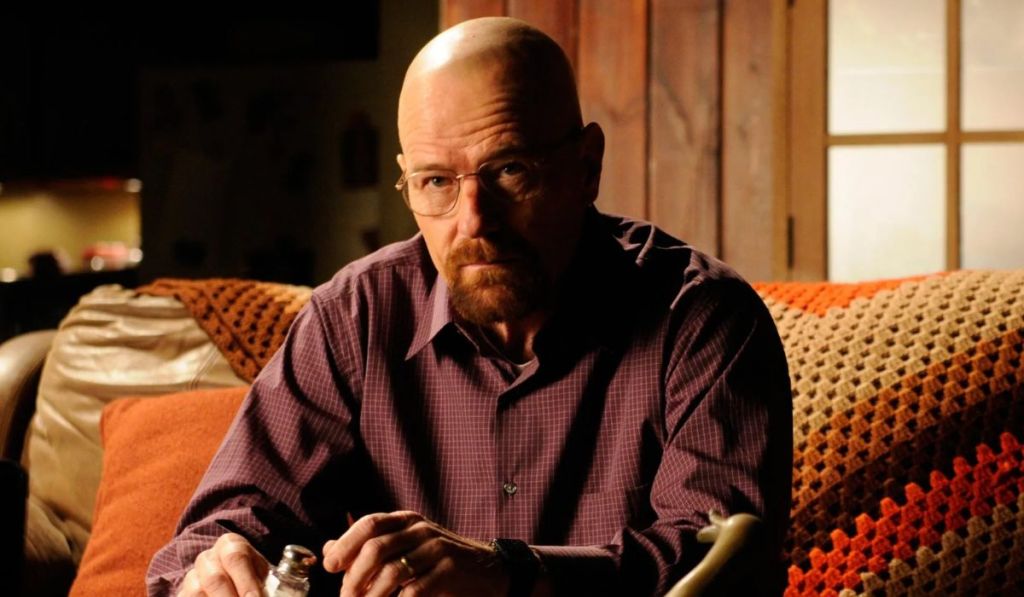
[RELATED: 5 Best TV Show Monologue Scenes of Our Time]
Walter White’s arc in Breaking Bad is often cited as one of the most brilliantly constructed in TV history – and for good reason. What begins as the tragic story of a failed chemistry teacher who turns to crime to support his family soon becomes something much darker: the unshackling of an ego that had always been simmering beneath the surface. Over the course of the show, Walter stops being a desperate man and gradually reveals himself as someone who has always craved control, power, and recognition. “I did it for me,” his final confession, is the perfect conclusion to a narrative that, while disguised as moral downfall, has always been about identity.
The genius of the show – beyond being considered one of the greatest of all time – lies in how it subverts the traditional hero’s journey by making us root for his rise, even as we watch it leave destruction in its wake. What sets this arc apart is the meticulous pacing of his transformation: a chain of small, calculated decisions, each justified with logic and a personal code of ethics that grows increasingly warped. It’s basically a super sharp character study of a guy who’s cold, clever, and ruthless – and yet impossible to look away from.
3) Steve Harrington (Stranger Things)
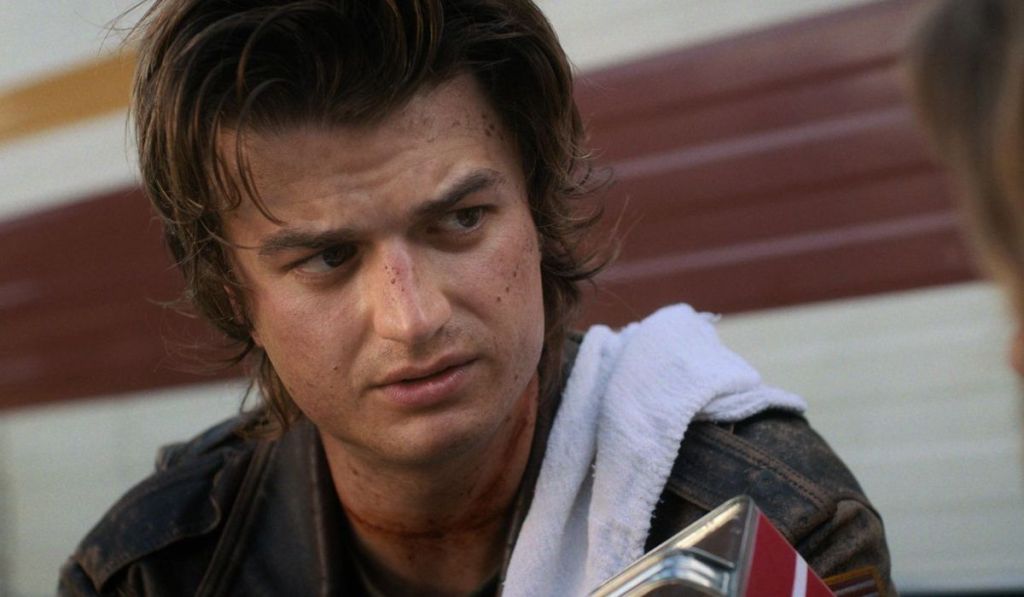
Stranger Things managed to create a character who won over audiences almost by accident. Steve Harrington’s arc is one of those rare cases where a secondary character, originally written to be disposable, effortlessly steals the show. Introduced as the typical arrogant high school heartthrob (and the cliché toxic boyfriend in a teenage love triangle), Steve was never meant to be more than that. But over the seasons, he reinvents himself with surprising ease. His transition from selfish bad boy to the group’s “official babysitter” is not only entertaining, it’s genuinely touching.
The character becomes a symbol of maturity and loyalty, all while keeping the awkward charm that makes him feel so real. But what’s most impressive is how the show lets him grow not through major traumas or a dramatic redemption arc, but through everyday experiences: friendships, heartbreaks, disappointments, and quiet moments of bravery. Steve doesn’t need to save the world to prove his worth – he just needs to show up, be present, and take care of the people around him. And he does that better than anyone else.
4) Spike (Buffy the Vampire Slayer)
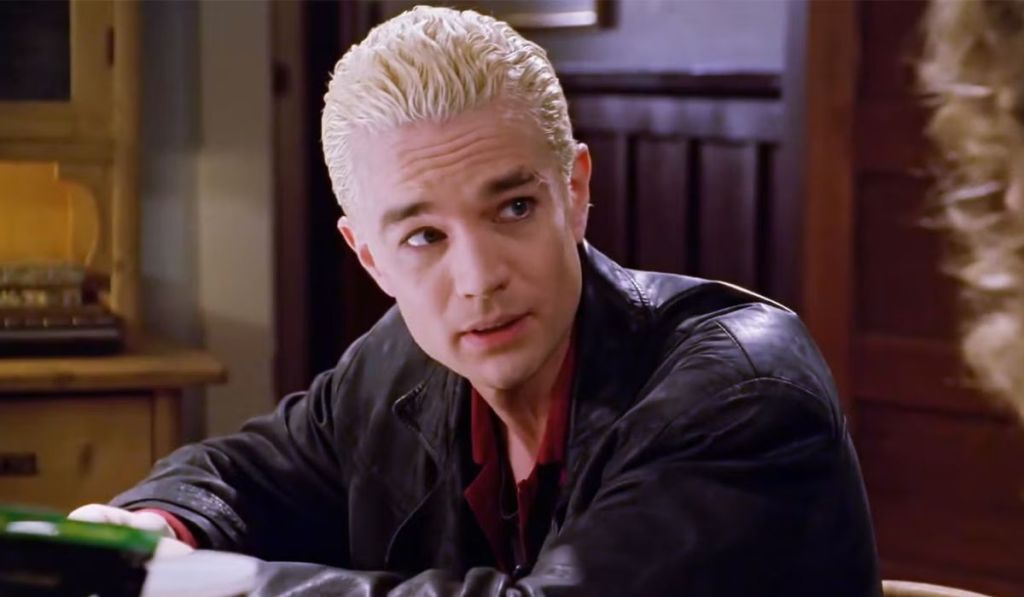
Boldness and complexity? Buffy the Vampire Slayer delivered when it chose to craft Spike’s trajectory. Introduced as a charismatic and ruthless villain, he was seemingly meant to be eliminated within a few episodes – but quickly carved out his place thanks to his sharp, fan-favorite wit, magnetic presence, and unexpected layers. What truly sets his journey apart, though, isn’t just the transition from enemy to ally, but how that transformation is steeped in moral ambiguity, emotional pain, and raw desire. Unlike most redemption arcs, Spike’s is never neat: he messes up, hurts people, gets hurt, tries, fails – often in devastating ways.
The difference lies in his unpredictability and emotional depth. Spike doesn’t change for love – he destroys and rebuilds himself because of it. His quest for his soul isn’t a romantic gesture, but an existential reckoning driven by guilt, regret, and a desperate grip on humanity. The show boldly places him in uncomfortable, morally gray situations, forcing the audience to constantly ask whether he deserves redemption or punishment – which is exactly what makes his arc so compelling. In the end, Spike becomes something rare: someone who chooses good, even while knowing that evil still lingers inside. That’s what makes him unforgettable.
5) Zuko (Avatar: The Last Airbender)

Another great character with a rich arc and widespread recognition is Zuko from Avatar: The Last Airbender. Initially, he is the exiled prince obsessed with capturing the Avatar to reclaim his honor, but he soon begins a journey of self-discovery that challenges his beliefs, loyalties, and sense of identity. Torn between the need for his father’s approval and the pull toward his own moral compass, Zuko becomes a deeply layered figure who evolves from a primary antagonist into one of the show’s most beloved heroes.
What sets Zuko’s arc apart is the raw authenticity with which his transformation unfolds. He doesn’t change overnight – instead, the show meticulously builds his path through doubts, failures, and internal battles. Through his bond with Uncle Iroh and the personal trials that test his values, Zuko begins to question not just what others expect of him, but who he truly wants to be. Yes, his redemption arc is powerful, but more than that, it’s a deeply personal victory – a symbol of hope and emotional growth. His story proves that real strength lies in self-awareness and the courage to defy the legacy you’re born into. And that’s what makes his arc timeless.
6) Ahsoka Tano (Star Wars: The Clone Wars/Rebels)
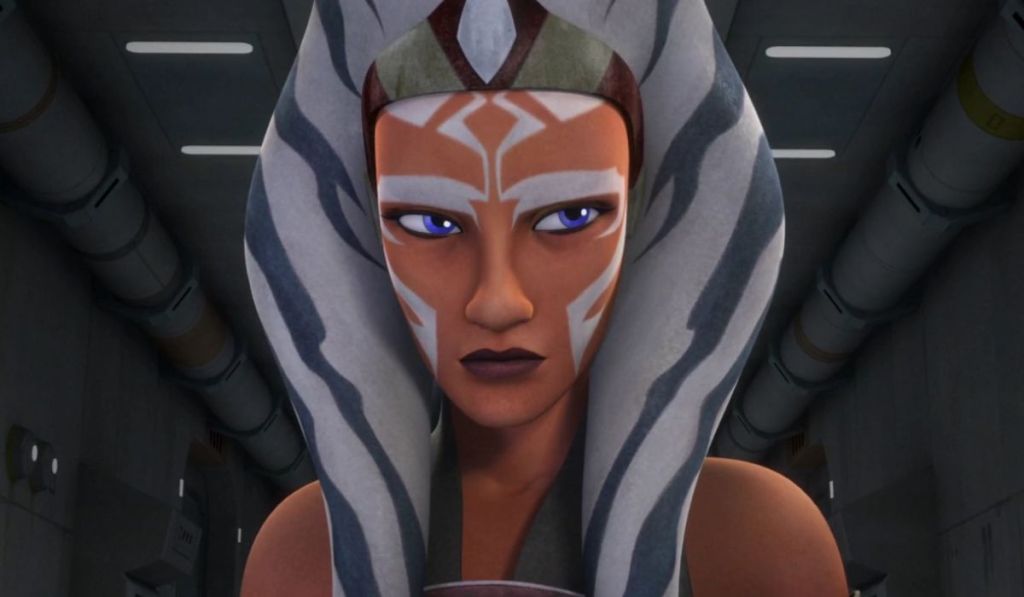
Star Wars boasts one of fiction’s most compelling examples of character transformation in Ahsoka Tano. When she first appeared on screen, she was seen as little more than Anakin Skywalker’s impulsive young Padawan – but she quickly grew beyond that stereotype. Ahsoka’s journey is marked by profound moral challenges and a relentless search for identity amid the chaos of war and the growing corruption within the Republic. But it’s her decision to leave the Jedi Order that elevates her arc, adding a level of complexity rarely explored in stories aimed at younger audiences. It’s a moment that shows true courage: the strength to question, to walk away, and to stand by her convictions.
What makes Ahsoka’s arc stand out is her unwavering autonomy and strong personal ethics. Across The Clone Wars and Rebels, she evolves into an independent force (quite literally) operating outside the traditional Jedi framework and becoming a beacon of hope and resistance in the face of the Empire’s tyranny. Her emotional, intellectual, and spiritual growth speaks to multiple generations of fans, proving that a hero’s journey isn’t always about fulfilling destiny, but about forging one’s own path. That makes Ahsoka not only a standout, but one of the most admirable and fully realized characters ever.
7) Damon Salvatore (The Vampire Diaries)

Damon Salvatore belongs to the group of fictional vampires who are impossible to forget. What makes The Vampire Diaries character so compelling is his constant duality: lover and killer, loyal brother and destroyer, reluctant hero and charismatic villain. At the start of the show, Damon is cynical, impulsive, and bloodthirsty – seemingly driven by vengeance and chaos. But as the show progresses, layers begin to peel away, revealing a deeply wounded man torn between a desire for redemption and the fear that he’ll never truly deserve it. His evolution unfolds organically through difficult choices, painful losses, and, above all, his turbulent relationships with Elena and Stefan.
However, the powerful thing about Damon’s arc is that he doesn’t deny his nature – he knows exactly who he is. At first, he tries to change for Elena, trying to suppress the worst parts of himself for love. But over time, the vampire realizes that the person he wants to be – loyal, good, and whole – isn’t for anyone else. It’s for himself. This subtle but crucial shift in motivation gives his journey emotional weight. His growth isn’t linear; it’s filled with relapses, internal battles, and small, hard-earned victories. But by the end, the show doesn’t try to paint Damon as purely good – it just shows a man who chooses, every day, to be better.
8) Aemond Targaryen (House of the Dragon)

The character arcs in House of the Dragon are still taking shape, but even with the screen time so far, Aemond Targaryen stands out as one of the most intriguing and emotionally intense. From a boy who was ignored and humiliated, he grows into a cold, imposing warrior – basically the embodiment of bottled-up anger turned into a destructive force. His bond with Vhagar feels almost like a personal ritual – a clear turning point where he claims a new identity: the Targaryen who refuses to be underestimated by anyone.
But what’s really striking is how Aemond absorbs all the contempt he’s faced for so long. He’s not after love – he wants respect, no matter the cost. His presence is intimidating, calculated, and sometimes violent, driven by a quiet rage that’s always just beneath the surface. Aemond isn’t the typical villain; he’s more like a raw, unfiltered product of everything he’s been through. Instead of healing from trauma, he lets it shape him – and that makes him a fascinating, brutally honest character.
9) Starlight (The Boys)
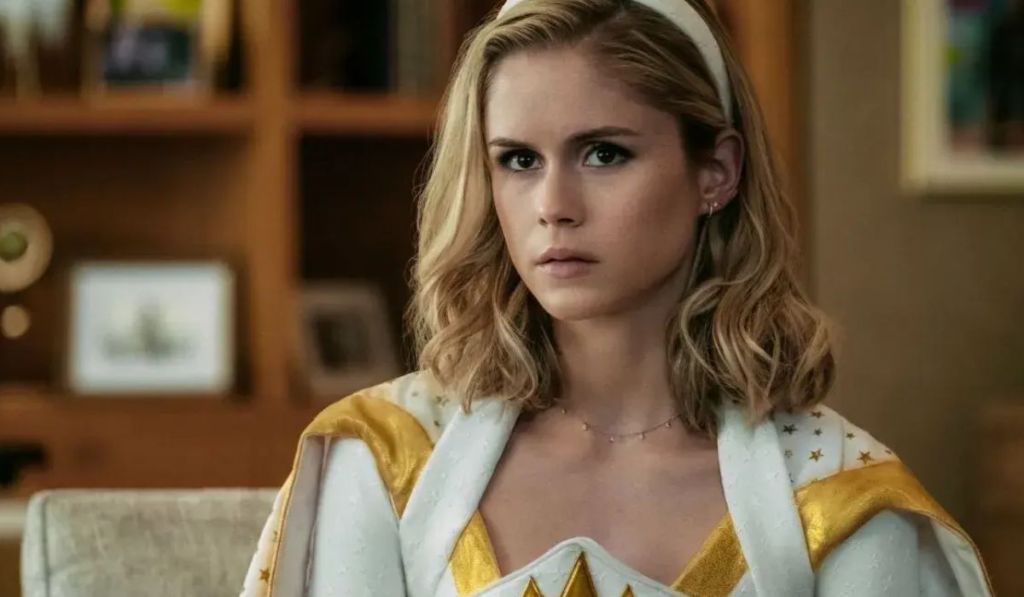
Starlight is a great example of deconstruction, but one rooted in a classic hero’s journey. In The Boys, where heroes are mostly cynical corporate marketing products, Annie January starts off as the small-town girl with powers and big idealistic dreams. When she joins the Seven, she quickly realizes just how toxic that world really is. But instead of breaking down, she changes – not by getting physically stronger, but by holding on to her integrity in a system determined to crush her from the inside out.
What makes Starlight’s arc stand out is the perfect mix of vulnerability and courage. Through every episode, she refuses to stay quiet, even when speaking out puts her life and reputation on the line. Her clashes with people like Homelander, and her choice to ditch her uniform and superhero act, show growth based on honesty. While most fall prey to power and fear, she’s one of the rare ones who chooses to be real – not because it’s easy, but because it’s the right thing to do. Starlight owns who she is, and every choice she makes, big or small, becomes a powerful act of resistance.
10) Daryl Dixon (The Walking Dead)
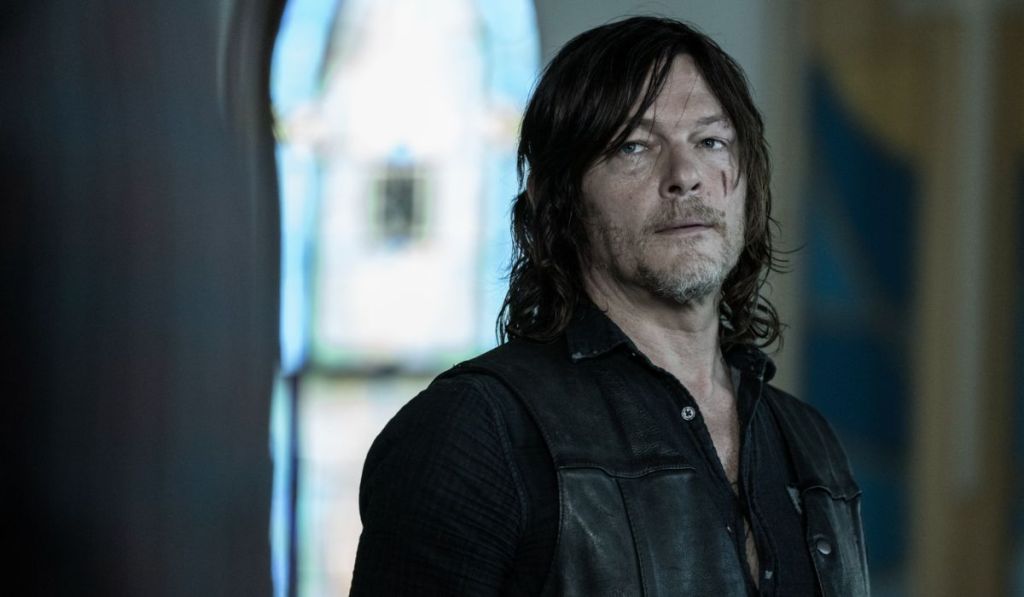
The Walking Dead is one of the most iconic TV shows ever, and when it comes to characters, Daryl Dixon was one of the first to really show powerful development (no surprise he earned his own spin-off). At first, he seemed like just another secondary character – unpredictable, violent, and fitting a rough stereotype. But over time, he became one of the emotional anchors of the entire series, thanks to the steady way he grew into someone reliable, empathetic, and fiercely loyal. His evolution happens quietly, through small gestures and looks that say more than words ever could. That’s enough for the audience to feel the change.
Daryl doesn’t need to break away from his past – he learns to make peace with it. He keeps his personality: the silent hunter, the man of few words and tough methods – but slowly takes on a deeper sense of responsibility and humanity, without flashy moments or big speeches. His bonds with others reveal a caring, vulnerable side that completely flips his original image. Despite probably having the roughest life of anyone on the show, he doesn’t use that as an excuse to mess up – he just keeps choosing to do what’s right.
The post These Are the 10 Best TV Show Character Arcs of All Time appeared first on ComicBook.com.
